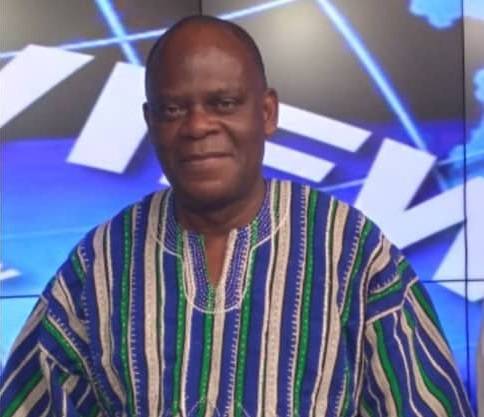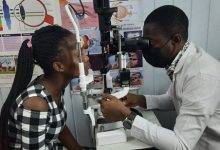Observing UN @ 78: UN must promote more development for least-developed countries – Dr Ahorsu

The United Nations (UN) marks 78th anniversary following its formation on October 24 1945 to foster global peace, security and promote international cooperation and development. Ghana adopts the theme “Accelerating action towards the Sustainable Development Goals (SDGs) and the 2030 Agenda: Ghana’s contribution for a peaceful, prosperous, progressive and a sustainable future” to mark the day with a Flag-raising ceremony at the Forecourt of the State House in Accra Today.
An International Relations expert, Dr Ken Ahorsu, a Senior Research Fellow at the University of Ghana, Legon Centre for International Relations and Diplomacy gives his perspectives on the relevance of the UN, reforms and the theme adopted by Ghana to mark the occasion. We reproduce excerpts of the interview he granted to the Ghanaian Times on October 19.
Ques: Is the UN still relevant for the purpose for which it was created?
Ans: The question whether the UN has outlived its usefulness or whether it is still relevant today has to be analysed from a more holistic perspective in the sense that peace and security under the regime of the UN does not only amount to physical manifestations of peace and security, there have been scientific approach whereby countries which are less developed and do not have the necessary human resources, the UN has provided them through the United Nations Development Programme and other specialized agencies of the UN. So many things are ongoing and to a large extend developing countries like Ghana has been benefited a lot from these UN largesse. Kofi Annan, a Ghanaian becoming the UN Secretary General and in terms of public diplomacy it has exposed Africa, and especial Ghana to a very large extend which has brought a lot of economic, political soft power benefits to Ghana. If you take the Kofi Annan International Peace keeping Centre that has been established in his memory, the amount money the international community has pumped into that establishment, these are very large to be modest. Besides, it has produced a lot of research, training which has impacted positively, globally and especially in Africa on our human resource .And when you come to the Kofi Annan specialist centre on communication which was largely funded by India, it has its own contribution. There are number of Ghanaians who have established a pedigree at the UN for Ghana, so summing up the question you will realize that there will always be a real politics in world politics, and the good thing is that apart from Ukraine and maybe in the Middle East, most of the hotspots of the world troubles are being contained or nipped in the bud, or even if it is peacekeeping, it has worked.
Ques: There are calls for reform in the UN system, what is your view on that?
Ans: Personally I’m skeptical about reforms, especially when it comes to regional membership whether there will have to be a permanent veto wielding countries or not, because from that perspective it will generate another large complaint, for example in Latin America, who becomes the leader or representative, is it Mexico, Argentina, or Brazil? When it comes to Africa is it Egypt, Morocco, South Africa or Nigeria or even Kenya? So, for me these are issues which we have to be careful with besides, apart from the symbolic significance, what change would the democratisation by inclusion of regional leaders bring to the UN Security Council (UNSC) in real terms? In functional terms? because, one thing that has been happening is that African countries, like South Africa which was a member of the UNSC during the Libyan crisis voted in favour of motions and when they finished voting in favour, outside they criticise the resolution, so I don’t see how it will change it.
What I would ask for is for more of developments for the least developed continents, especially Africa in terms of financial resources, because when you look at foreign direct investment, Africa has been lagging behind and the few that comes into our country are in the extractive sectors, mining which has ecological challenge, so I think this is what we should be fighting for, there are other areas which are problematic, like what we call “single issues in international relations” which is about human rights whether this definition should be cosmopolitan, universal applying to everybody, or there should be communitarian depending on needs of particular region.
Also gender issues of women or female is a laudable thing, especially in Africa, some aspects of our culture limits the self-actualisation of women, however, again issues of LGBTQ+ caution should be exercise that the culture of Europeans or moral values accepted, should not be forced down on the rest of the world. This is what I will say and the reforms should take this kind of form, that it must be open, and dissenting views on certain things should be accepted, like on this gay and other sort of things, because it is not necessarily cultural from an African perspective, there are other things Africans are given to, polygamy, Africa are not calling on the world to adopt polygamy so some of these difference have to be contained.
Ques: What is your perspective on the theme adopted by Ghana “Accelerating action towards the Sustainable Development Goals (SDGs) and the 2030 Agenda: Ghana’s contribution for a peaceful, prosperous, progressive and sustainable future?”
Ans: It is a very good theme, it is all over the place because it is largely about sustainable development, we are witnesses to the crises of unsustainable development, especially in terms of climate change and weather variability, though ecological conflicts or insecurity has been looked up as something of the future, not yet present, In Africa these things are already present, and we do not have technology to tame the environment that is one aspect of the theme, the Sahel since the late ‘70s has been extending one-and-a- half mile every year towards the coastal states, or what we call the Littoral States, and the Fulani crisis has been described by some media houses as a menace because of the instability, abuse of human rights violence, and even death, destruction that it is brought. Today we have a crisis on our hands when there is too much water in Akosombo dam, efforts which have been made like clearing streams, removing these weeds, which have grown in most rivers’, silting has not been done before the release of water which has impacted negatively, so from that aspect that is very important. I think one other aspect is the promotion of women’s right, it’s very important that women should be looked up to as source of light, people who are particularly constrained and disadvantaged when it comes to sexuality. We have a lot of problems in Africa and Ghana in particular, whereby teenage, sexual health problem issues are not properly addressed, then we have pregnant women mortality, women who suffer a lot and sometime health delivery system are not all over the place, accessibility has become a problem. And some women die in child-birth and other sort of things.
The best way to talk about sexual health and reduce maternal mortality rates will mean educating women, given them skills even using social engineering to change their stand in society and a lot of people from the time of Aggrey believed that when women are educated or are in the forefront. Programmes to promote women are very important, giving them skills, economically, financially and politically serves the wellbeing of the family, the community and our society. I think these are the two strands that come to mind when it comes to the agenda in the theme, Ghana has taken for the celebration.
Ques: What do you want the world to be like or the UN to be in the next 78 years?
Ans: Well, I’m a black man, I’m a Ghanaian, I’m an African, and I think peace and stability, especially when we look at it from the perspective of migration which the developed world sees as dysfunctional to them, the best thing to do is that, the developed world should encourage and promote socioeconomic development in the developing countries, because Africa, that is our challenge, how do have food on the table, how to take care of children, and things are becoming more and more frustrating.
For me development is more important and when you see what is happening in the Latin America which are trying to get into the US, it will be helpful that the rest of the world is developed. The Europeans, the Americans, the Japanese, the Chinese are the developed world, they have the resources, they have the experts to develop. For example, in Tunisia, Algeria and Morocco, a lot of industries have been developed to employ the local population so as to discourage migration, so such type of policies are very important, culturally socio-cultural perspective are also very important that the UN has to promote. Development Index has taken on a number of variations, it is not solely based on Gross Domestic Product, self-actualisation does not only depend on economic resources, for example, Finland has been adjudged as one of the happiest countries, Brazil has been judged so, what I’m calling for is that, respect for culture, respect for leisure, respect for other forms of manifestations in human existence because economic development alone is what has been driving ecological catastrophes across the world.
BY ALHAJI SALIFU ABDULRAHAMAN


